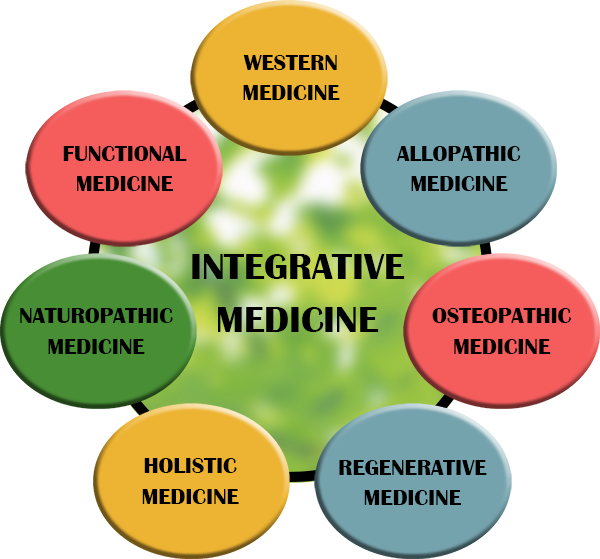
Ever asked yourself about a different name for holistic medicine? You could have heard these words from people or read them in health magazines but you are not sure if they refer to the same thing. Let’s talk about many sides of holistic medicine and shed light on terms that are often used as synonyms for it.
What are synonyms for holistic medicine?
Holistic medicine is often referred to as complementary, alternative, integrative, or natural medicine. These terms emphasize the approach’s focus on treating the whole person rather than just symptoms. Holistic medicine integrates various therapies for comprehensive care.
These synonyms underline the holistic medicine practice of combining several therapeutic practices in the pursuit of holistic well-being. Complementary medicine often accompanies conventional treatments, while alternative medicine may replace them. Integrative medicine merges traditional and alternative approaches, and the term natural medicine places great importance on using nature’s possibilities for restoring health.
How does holistic medicine differ from conventional medicine?
Holistic medicine focuses on treating the whole person’s mind, body, and spirit while conventional medicine often targets specific symptoms or diseases. Holistic approaches prioritize prevention, lifestyle changes, and natural therapies alongside conventional treatments.
Unlike the conventional type, holistic medicine stresses more on the balance between the human being’s physical, mental, emotional, and spiritual health, contrary to conventional medicine, which solely relies on the use of pharmaceuticals and surgery. This goes hand-in-hand with such practices as nutrition, acupuncture, meditation, and herbal remedies. Its approach is aimed at bringing about self-healing and general well-being by solving the root cause of the illness.

What are examples of holistic therapies?
Examples of holistic therapies include acupuncture, chiropractic care, herbal medicine, yoga, meditation, and massage therapy. These practices aim to enhance physical, mental, and emotional health through natural means and lifestyle adjustments.
There are some benefits associated with each type of therapy represented in holistic medicine. Acupuncture relieves pain and reduces stress; chiropractic looks after the spinal column alignment; herbal medicine uses plant drugs; yoga combines physical postures, breathing, and meditation to aid mental clarity; massage relaxes the muscles and reduces stress. Often, all these therapies work synergistically.
Why is holistic medicine gaining popularity?
Holistic medicine is gaining popularity due to its emphasis on personalized care, prevention, and natural treatments. Many people seek holistic approaches for chronic conditions, stress management, and overall wellness, appreciating its focus on treating root causes rather than symptoms.
It’s because, with the increasing awareness of conventional medicine’s limitations, most of them get into these holistic practices due to their all-rounded approach. Such practices more often than not have fewer side effects. They involve the patient and are oriented toward long-term benefits by dealing with lifestyle issues, diet, and mental well-being. Increasing popularity is also given to integrative medicine due to its rising acceptance into healthcare systems.
What role does nutrition play in holistic medicine?
Nutrition is a cornerstone of holistic medicine, emphasizing the importance of a balanced diet in maintaining health. Holistic nutrition focuses on whole, unprocessed foods, addressing nutritional deficiencies, and tailoring diets to individual needs for optimal well-being.
Good nutrition enhances the body’s natural healing abilities, supports the immune system, and also helps in the prevention of various kinds of chronic diseases. Quite frequently, holistic professionals design individual dietary plans that account for a person’s lifestyle, preferences, and specific health concerns. This approach is oriented to increase vitality and overall health by nourishing the body with nutritionally dense foods and mindful eating.

How does holistic medicine approach mental health?
Holistic medicine addresses mental health by considering emotional, psychological, and social factors. It integrates therapies like mindfulness, counseling, meditation, and lifestyle changes to promote mental well-being and balance.
Holistic practitioners will, therefore, look to find and dispel one’s stressors, negative thoughts, and emotional imbalances by accepting this mind-body connection. Some techniques, such as mindfulness, render one more aware and resistant, while some lifestyle adjustments for instance, exercising and social engagement enhance one’s mood and mental lucidity. This whole concept creates long-lasting mental health and harmony.
Can holistic medicine be used alongside conventional treatments?
Yes, holistic medicine can complement conventional treatments, offering integrative care that addresses both symptoms and underlying causes. This combination enhances treatment effectiveness and supports overall well-being.
It has combined the best holistic and conventional approaches to patient care. Acupuncture, for example, can be given to alleviate side effects from chemotherapy, while modifications in diet and management of stress could enhance the healing process and prevent further sickness. Thus, the combination of these therapies offers much more balanced and tailored healthcare.
Wrapping Up!
Let’s embrace a more comprehensive method with our minds and hearts set on achieving complete physical, mental, and emotional wellness rather than the mere absence of disease. So when will you start a journey towards being holistically healthy?
